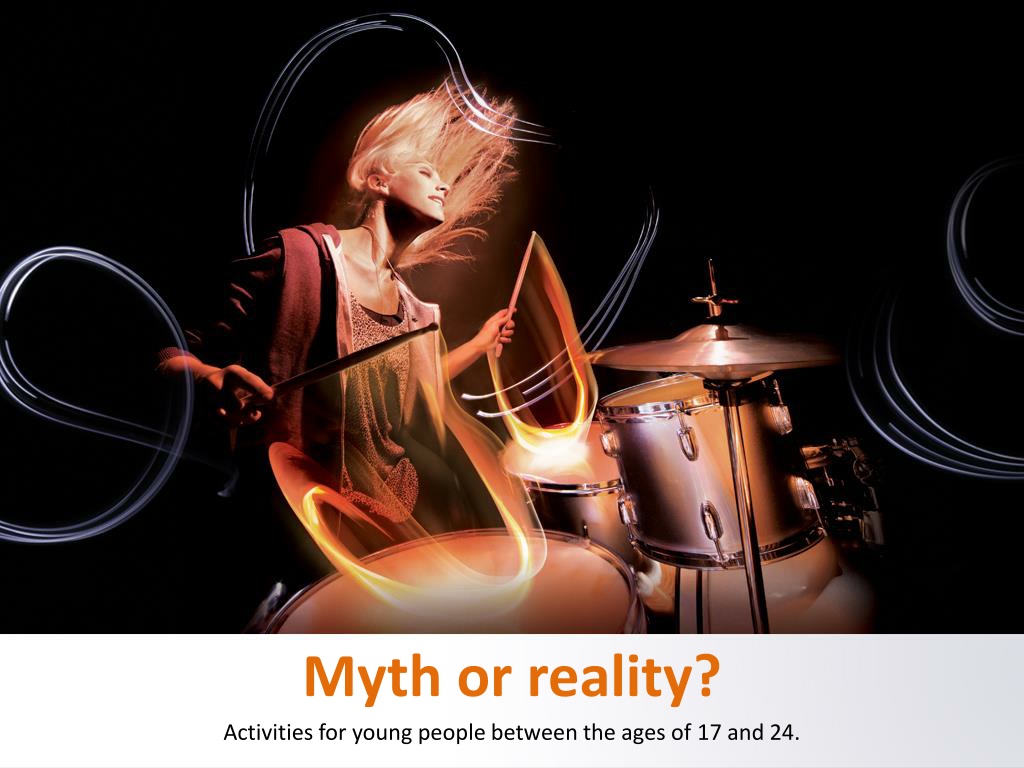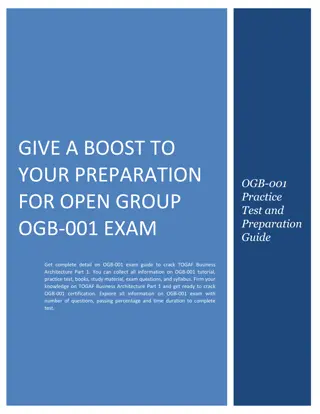Debunking Substance Abuse Myths Among Young Adults
The article sheds light on common myths regarding alcohol and drug use among individuals aged 17-24. It discusses the reality behind statements related to alcohol consumption, its effects on behavior and intelligence, and the misconception that substance abuse only affects the individual. The content emphasizes the broader implications of drug and alcohol misuse on relationships, physical and psychological well-being, and society at large.
Download Presentation

Please find below an Image/Link to download the presentation.
The content on the website is provided AS IS for your information and personal use only. It may not be sold, licensed, or shared on other websites without obtaining consent from the author. Download presentation by click this link. If you encounter any issues during the download, it is possible that the publisher has removed the file from their server.
E N D
Presentation Transcript
Myth or reality? Activities for young people between the ages of 17 and 24.
Statement 1 The number of young people age 15 to 24 who drink alcohol goes up every year.
Answer Myth According to the Canadian Alcohol and Drug Use Monitoring Survey conducted by Health Canada in 2011, 70.8% or fewer than three quarters of young Canadians age 15 to 24 said they had used alcohol during the previous 12 months. This was down from 82.9% in the 2004 study.
Statement 2 When I drink alcohol I can feel more relaxed, funnier, or smarter.
Answer Myth There s no assurance that drinking will make you a nicer or more fun person. Alcohol and drugs affect brain function, altering the way neurons communicate and interfering with your senses, which can impair your judgment, make you behave differently, and hamper your coordination. It s possible to function as you normally would under the effect of drugs or alcohol, but you surely won t become smarter or more fun!
Statement 3 I m the only one affected by the negative stuff that can result when I consume alcohol or other drugs so it s nobody else s business!
Answer Myth It s true that the negative aspects of alcohol or drug abuse affect users directly. For instance, they might experience: Injuries after a fight or accident Physical problems (headache, digestive issues, low energy) Psychological problems (inattentiveness in class, bad moods, irritability, anxiety, depression, etc.). But families can suffer too, and so can friends and people you re close to, if there are: Relationship problems (big arguments when the user is under the influence of alcohol or drugs, disagreements over their use, and so on) Unprotected sexual encounters that can result in sexually transmitted infections or unwanted pregnancies, and take a toll on emotions and relationships And we re not even talking about the highway accidents that result from driving under the influence. The victims are often perfect strangers, and there can be short-, medium-, or long- term consequences for all. Can you describe some other ways that substance abuse affects us?
Statement 4 Drug use among people ages 15 to 24 has been decreasing for a few years.
Answer Reality According to data obtained through the Canadian Alcohol and Drug Use Monitoring Survey (January 2011), marijuana use during the 12 months prior to the survey decreased among young people ages 15 to 24, from 37% in 2004 to 21.6% in 2011. Usage of drugs other than alcohol and marijuana fell from 11.3% in 2004 to 4.8% in 2011.
Statement 5 Gambling is growing increasingly more popular with people age 17 and up.
Answer Myth In general, secondary student involvement in gambling has decreased since 2002. More specifically, among youths in Secondary 5 it has fallen from 61.5% in 2002 to 47.5% in 2008. (Qu bec Survey of Smoking, Alcohol, Drugs and Gambling in High School Students, conducted in 2008 by Institut de la statistique du Qu bec).
Statement 6 Practice sites for online gambling let you sharpen your skills before you move up to more serious sites where you can win big!
Answer Myth It s generally acknowledged that the odds of winning are higher on practice sites, where people can play without wagering their money, than they are on pay-to-play sites.
Statement 7 Friday nights, Sophie goes out with her friends and always has at least five drinks. Even though she doesn t drink at all the rest of the week, we can say she s abusing alcohol.
Answer Reality Alcohol or drug abusers aren t necessarily drinking or taking drugs several times a week but when they do indulge, it involves large quantities (five or more drinks) and a combination of substances. Substance abusers are often trying to get their minds off things, to forget their problems, or disconnect from reality. Over time, abuse of alcohol or drugs can result in physical or psychological dependency. It can also lead to other problems, like dropping out of school, losing a job, delinquency, or violence.
Statement 8 Consuming more and more alcohol or drugs and doing so more often is one of the signs that a person is becoming dependent or developing a substance abuse problem.
Answer Reality Here are some other signs: Spending a great deal of time thinking about drugs or alcohol, including how to get and consume them, or find the money to buy them Losing interest in favorite activities or hobbies and in non-using friends Wanting to cut back or manage one s use without being able to actually do so Using to feel better or braver, or to forget one s problems Needing to use more and more, in order to get the same effect Feeling guilty about drug or alcohol use
Statement 9 Chug-offs are a sure way to show who the real drinkers are.
Answer Myth Chugging doesn t prove a thing. You may look tough but alcohol will still have an effect. And chugging is dangerous. It can cause severe alcohol intoxication, which can result in death in less than an hour. That s why it s so important to closely monitor anyone who appears to have consumed a large amount of alcohol in a short amount of time. Never leave that person alone. The signs of severe intoxication are: Significant or total inability to react Loss of consciousness or deep sleep Respiratory distress Weak pulse Repeated vomiting Excessive perspiration Damp or cold skin (hypothermia). WARNING: A person exhibiting these signs should never be left alone. Call 911.
Statement 10 Two people who each buy ecstasy tablets from the same dealer can expect to be taking the same concoction.
Answer Myth Health Canada chemists analyzed samples of seized designer drugs and found that two pills that appear to be identical may actually be made of completely different substances. So someone taking these drugs may think they re getting product X ...when they re really taking something entirely different. They may feel nothing at all, or the effect they expect in part or in whole or they may experience an extremely strong or even toxic reaction. It s important to realize that taking designer drugs is always risky, since there s no way of knowing exactly what you re getting.























